| Weight | 1 lbs |
|---|---|
| Dimensions | 9 × 5 × 2 in |
| host | mouse |
| isotype | IgG2a |
| clonality | monoclonal |
| concentration | 1 mg/mL |
| applications | ICC/IF, WB |
| reactivity | Human von Willebrand Factor |
| available sizes | 200 µg |
mouse anti-von Willebrand Factor monoclonal antibody (VW92-3) 5389
$497.00
Antibody summary
- Mouse monoclonal to von Willebrand Factor
- Suitable for: WB,IHC
- Isotype: IgG2a
- 200 µg
mouse anti-von Willebrand Factor monoclonal antibody (VW92-3) 5389
| antibody |
|---|
| Tested applications WB,IHC,IHC |
| Recommended dilutions ELISA: 1-10ug/ml with vWF on the solid phase Western Blot: 5-10ug/ml; useful under non-reducing conditions. Immunohistochemistry: 5-10ug/ml on paraffin embedded and frozen tissue sections. |
| Immunogen Human plasma von Willebrand Factor. |
| Size and concentration 200µg and |
| Form lyophilized |
| Storage Instructions The stock solution (2. 0mg/ml) can be stored in aliquots at - 20°C for 1 year or can be stored at 4°C for 6 months after adding 0.1% sodium azide. Dilutions of stock solution should not |
| Storage buffer PBS, 1% BSA, pH 7.4, lyophilized. |
| Purity immunogen affinity purification |
| Clonality monoclonal |
| Isotype IgG2a |
| Compatible secondaries goat anti-mouse IgG, H&L chain specific, peroxidase conjugated polyclonal antibody 5486 goat anti-mouse IgG, H&L chain specific, biotin conjugated, Conjugate polyclonal antibody 2685 goat anti-mouse IgG, H&L chain specific, FITC conjugated polyclonal antibody 7854 goat anti-mouse IgG, H&L chain specific, peroxidase conjugated polyclonal antibody, crossabsorbed 1706 goat anti-mouse IgG, H&L chain specific, biotin conjugated polyclonal antibody, crossabsorbed 1716 goat anti-mouse IgG, H&L chain specific, FITC conjugated polyclonal antibody, crossabsorbed 1721 |
| Isotype control Mouse monocolonal IgG2a - Isotype Control |
| target relevance |
|---|
| Protein names von Willebrand factor (vWF) [Cleaved into: von Willebrand antigen 2 (von Willebrand antigen II)] |
| Gene names VWF,VWF F8VWF |
| Mass 309265Da |
| Function FUNCTION: Important in the maintenance of hemostasis, it promotes adhesion of platelets to the sites of vascular injury by forming a molecular bridge between sub-endothelial collagen matrix and platelet-surface receptor complex GPIb-IX-V. Also acts as a chaperone for coagulation factor VIII, delivering it to the site of injury, stabilizing its heterodimeric structure and protecting it from premature clearance from plasma. |
| Subellular location SUBCELLULAR LOCATION: Secreted {ECO:0000269|PubMed:10961880}. Secreted, extracellular space, extracellular matrix {ECO:0000269|PubMed:10961880}. Note=Localized to storage granules. |
| Tissues TISSUE SPECIFICITY: Plasma. |
| Structure SUBUNIT: Multimeric. Interacts with F8. {ECO:0000269|PubMed:10961880, ECO:0000269|PubMed:9218428}. |
| Post-translational modification PTM: All cysteine residues are involved in intrachain or interchain disulfide bonds.; PTM: N- and O-glycosylated. {ECO:0000269|PubMed:14760718, ECO:0000269|PubMed:19139490, ECO:0000269|PubMed:19159218}. |
| Domain DOMAIN: The von Willebrand antigen 2 is required for multimerization of vWF and for its targeting to storage granules. |
| Involvement in disease DISEASE: von Willebrand disease 1 (VWD1) [MIM:193400]: A common hemorrhagic disorder due to defects in von Willebrand factor protein and resulting in impaired platelet aggregation. Von Willebrand disease type 1 is characterized by partial quantitative deficiency of circulating von Willebrand factor, that is otherwise structurally and functionally normal. Clinical manifestations are mucocutaneous bleeding, such as epistaxis and menorrhagia, and prolonged bleeding after surgery or trauma. {ECO:0000269|PubMed:10887119, ECO:0000269|PubMed:11698279}. Note=The disease is caused by variants affecting the gene represented in this entry.; DISEASE: von Willebrand disease 2 (VWD2) [MIM:613554]: A hemorrhagic disorder due to defects in von Willebrand factor protein and resulting in altered platelet aggregation. Von Willebrand disease type 2 is characterized by qualitative deficiency and functional anomalies of von Willebrand factor. It is divided in different subtypes including 2A, 2B, 2M and 2N (Normandy variant). The mutant VWF protein in types 2A, 2B and 2M are defective in their platelet-dependent function, whereas the mutant protein in type 2N is defective in its ability to bind factor VIII. Clinical manifestations are mucocutaneous bleeding, such as epistaxis and menorrhagia, and prolonged bleeding after surgery or trauma. {ECO:0000269|PubMed:12406074, ECO:0000269|PubMed:1409710, ECO:0000269|PubMed:1419803, ECO:0000269|PubMed:1419804, ECO:0000269|PubMed:1420817, ECO:0000269|PubMed:1429668, ECO:0000269|PubMed:1672694, ECO:0000269|PubMed:1673047, ECO:0000269|PubMed:1729889, ECO:0000269|PubMed:1761120, ECO:0000269|PubMed:1832934, ECO:0000269|PubMed:1906179, ECO:0000269|PubMed:2010538, ECO:0000269|PubMed:2011604, ECO:0000269|PubMed:21592258, ECO:0000269|PubMed:2786201, ECO:0000269|PubMed:7620154, ECO:0000269|PubMed:7734373, ECO:0000269|PubMed:7789955, ECO:0000269|PubMed:8011991, ECO:0000269|PubMed:8123843, ECO:0000269|PubMed:8123844, ECO:0000269|PubMed:8338947, ECO:0000269|PubMed:8348943, ECO:0000269|PubMed:8376405, ECO:0000269|PubMed:8435341, ECO:0000269|PubMed:8486782, ECO:0000269|PubMed:8547152, ECO:0000269|PubMed:8622978}. Note=The disease is caused by variants affecting the gene represented in this entry.; DISEASE: von Willebrand disease 3 (VWD3) [MIM:277480]: A severe hemorrhagic disorder due to a total or near total absence of von Willebrand factor in the plasma and cellular compartments, also leading to a profound deficiency of plasmatic factor VIII. Bleeding usually starts in infancy and can include epistaxis, recurrent mucocutaneous bleeding, excessive bleeding after minor trauma, and hemarthroses. {ECO:0000269|PubMed:10887119, ECO:0000269|PubMed:7989040, ECO:0000269|PubMed:8088787}. Note=The disease is caused by variants affecting the gene represented in this entry. |
| Target Relevance information above includes information from UniProt accession: P04275 |
| The UniProt Consortium |
Data
| No results found |
Publications
| pmid | title | authors | citation |
|---|---|---|---|
| We haven't added any publications to our database yet. | |||
Protocols
| relevant to this product |
|---|
| Western blot IHC |
Documents
| # | SDS | Certificate | |
|---|---|---|---|
| Please enter your product and batch number here to retrieve product datasheet, SDS, and QC information. | |||
Only logged in customers who have purchased this product may leave a review.
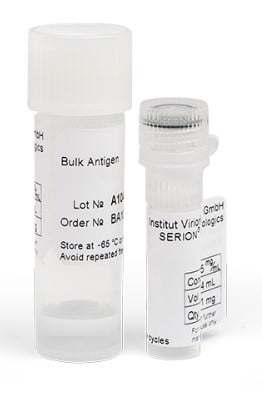
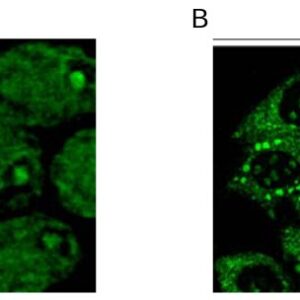
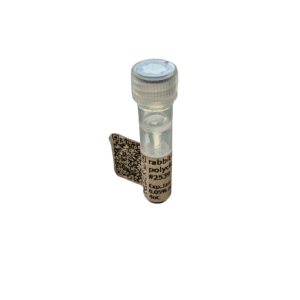
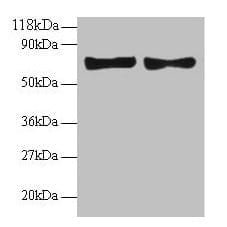
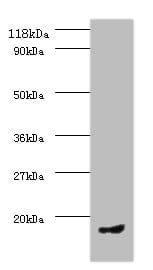

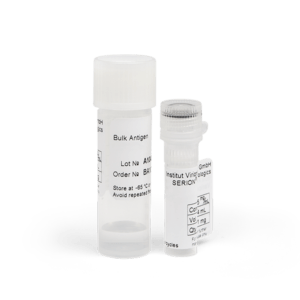
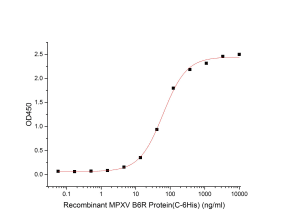
Reviews
There are no reviews yet.